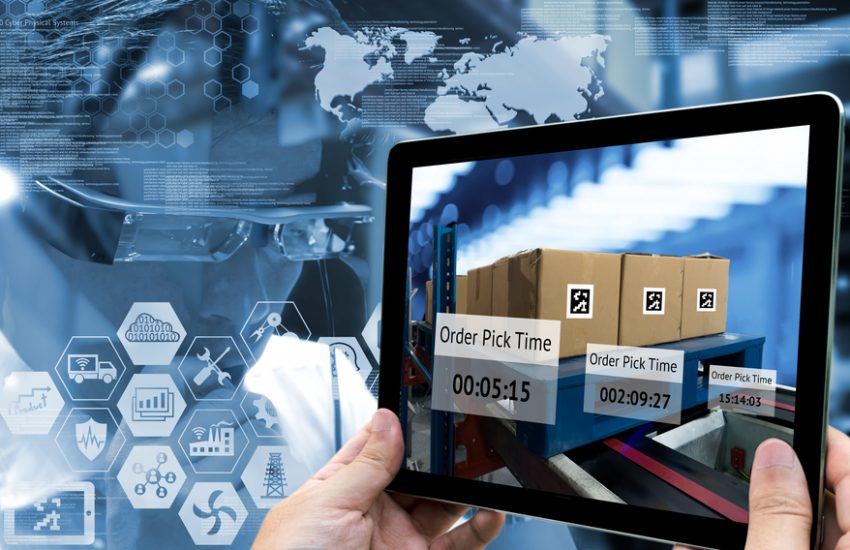GPS or RFID? The debate on which of these two technologies is better has been going on for ages. While most companies still believe in using GPS tracking solutions for container tracking, some modern startups and giant organizations have switched to RFID for its automation and better controllable features.
![]()
But which of these two technologies is better for asset tracking? Should you use the satellite-based GPS asset tracking system or go for the more modern RF-dependent RFID tracking system?
We will discuss both technologies in detail and compare them to decide which will be suitable for your business.
GPS vs. RFID: Definition
Before moving forward to their differences and comparison, it’s important to know the meaning of both terms.
Here, the system stores the signals that it receives from tagged devices. After that, it uses unique algorithms in understanding the exact location of the asset.
Seems quite simple, right? Well, it is.
RFID, or Radio Frequency Identification, on the other hand is the process of tracking assets through radio waves.
How? Well, here the system uses transmitters to capture radio waves and communicate through it. Based on the communication, the system gets in-detail information on the assets.
Besides, with RFID you have the freedom of adding numerous software, readers, networks, and other advanced technologies to get more details.
GPS vs. RFID: A Detailed Comparison
Though GPS and RFID are used for tracking assets and might seem similar, they are quite different. How? Let’s discuss the differences between these two technologies. Make sure to note them down before deciding on one of them.
1. Energy Consumption
We all know that GPS is a power-hungry technology and uses up all your battery power. Besides, it requires constant source of energy and proper processors to run properly and give you details on time.
![]()
The best example here would be GPS devices in the car or mobile GPS. When you connect a GPS device to your car to get directions, it runs on your car battery, thus draining it out faster. The same happens in the case of mobile phones as well.
The main reason for this high energy consumption is that GPS uses satellite signals to connect with the entire system, which takes up a lot of time and calculation, thus, high energy.
On the other hand, RFID requires little to no energy for processing. In the case of passive RFID tracking systems, the RFID tags do not require any battery as they run completely on radio waves and transmit the signals to the nearest reader.
On the other hand, active RFID tags run on a battery that effectively catches signals and enables further process without delay. However, the battery runs on less power as compared to that of a GPS asset tracking system.
2. Cost Effectiveness
Talking about installation charges and other capital that an organization has to invest, we would say RFID is much more affordable than GPS.
![]()
RFID asset tracking system is a one-time investment that will bring you high ROI. Moreover, RFID tags are available at affordable prices in markets.
But, the cost is high when we come to GPS asset tracking systems. Most of the capital goes into the maintenance and battery replacement of the system.
3. Accuracy
While GPS provides real-time location details, the RFID tracking system provides shipment details, weight, pressure, temperature, and other details along with the vehicle’s location.
As RFID tags have huge storage compared to GPS, you can easily store important information without any hassle.
Besides, RFID tags remove the possibility of manual interference; hence there are fewer chances of miscalculation and errors. The data you get from an RFID tracking system is a lot more accurate than other systems.
4. Suitable Businesses
Both GPS and RFID tracking systems are designed for specific types of businesses.
For example, GPS tracking solutions are more suitable for global business where shipments travel across countries and continents.
As a GPS asset tracking system has the ability of geofencing, you can easily track shipments outside your boundaries without any interference. But you cannot do the same with an RFID tracking system.
Likewise, RFID systems are more suitable for asset tracking within states and countries. As these systems work in enclosed places, they cannot track beyond the boundaries that are already set in the system.
5. Better Control
Both RFID and GPS asset tracking systems provide you with good control, but RFID has the upper hand in this case.
Automation is involved in RFID tracking systems, so you can easily control what information you want to view from your desktop.
Besides, GPS tracking systems cannot track assets in closed spaces, thus making it difficult for businesses to get accurate details in such scenarios.
Besides that, RFID trackers provide proper transparency throughout the process so that you can take necessary steps wherever and whenever required.
GPS with RFID: Benefits of Combination
Though RFID and GPS tracking solutions are different, they can be a solid force of action when combined. Some enterprises use a combination of RFID GPS trackers to get a better hold over their supply chains and have yielded fruitful results.
As RFID GPS trackers use the best of both technologies, you can benefit from the automation and storage facility of RFID tracking systems and geofencing and real-time location details of GPS asset tracking systems.
RFID and GPS tracking solutions are best in their fields and used accordingly. If you are looking for RFID solutions or GPS-based solutions for your business, then Sepio Products can help you out. They have the best products to make asset tracking a cakewalk for you. Contact them at hello@sepioproducts.com for more information.
